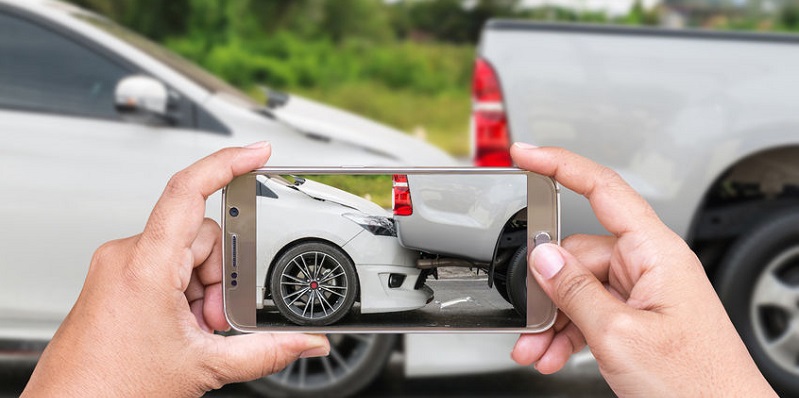Low-speed auto accident damages are often far from cheap to repair. Even a small, economical car can have a repair bill ranging between $3000 and $4000 after a low-speed collision.
Do I Have to Report It to My Insurance Company?
Accidents – unintentional and unexpected collisions involving vehicles – happen every day. Some of the most common auto accidents in Colorado are “fender benders,” low-speed collisions often happening in parking lots, intersections, stop and go traffic, and sometimes even in your driveway.
But according to Consumer Reports, when a fender bender involves more than one vehicle (about seven in 10 accidents do), you should contact your insurance company, no matter how minor the damage seems to be. Even for just a fender bender, you ask?
Yes, even for an apparent fender bender, because:
- The property damage might be much more severe than it appears.
- Some injuries, particularly those affecting the body’s soft tissues, may take days or even weeks to manifest.
- In the event of a Colorado-based accident, you are required to provide the other driver with your name, phone number, and insurance information, so even if you don’t report it to your insurer, it is likely that they will.
- If you don’t report an accident promptly, an insurance company might interpret it to be a false claim and refuse coverage.
Many people hesitate to report a minor accident to their insurance company for one of two reasons:
- They are afraid that their insurance premiums will increase.
- They think they will be able to work everything out with the other driver without involving the insurance company.
The only time you might be correct in choosing not to report an accident to your insurer is in the event of a low-speed, one-vehicle collision, such as hitting the garage door or backing into a mailbox, if the damage is to your property, well below your collision deductible, and no injuries occurred.
Low Speed Doesn’t Necessarily Mean Low Cost
One common misconception among drivers is that low-speed crashes do not typically cause significant damages and injuries, so there is no need to report them. However, according to the Insurance Institute for Highway Safety (IIHS), low-speed crash damages are often far from cheap to repair. Even a small, economical car can have a repair bill ranging between $3000 and $4000 after a low-speed collision.
In a series of crash tests involving 20 small cars in low-speed collisions, the best bumper in the group still allowed more than $1,000 damage during a three mph crash test. The poorest performers in the tests included the Hyundai Elantra, Toyota Prius, and Volkswagen Rabbit, each suffering more than $4,000 damage in a single crash test, according to the IIHS.
One More Thing Before You Call the Insurance Company
If you’ve determined that your accident rises to the level that requires a call to your insurance company, there are several things you should know before you make the call.
You need to understand your policy and what it provides, including your deductible, whether or not it will pay for a rental car, etc. Your policy’s Declarations Page can provide you with this information. You should also familiarize yourself with your coverage – collision, uninsured/underinsured motorist, and medical payments – and what it entitles you to.
And if it turns out that you were injured in the accident, you shouldn’t speak to the other driver’s insurance company without first consulting an experienced Colorado personal injury attorney.

